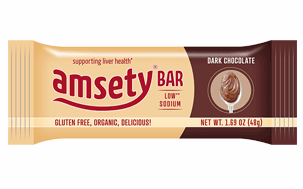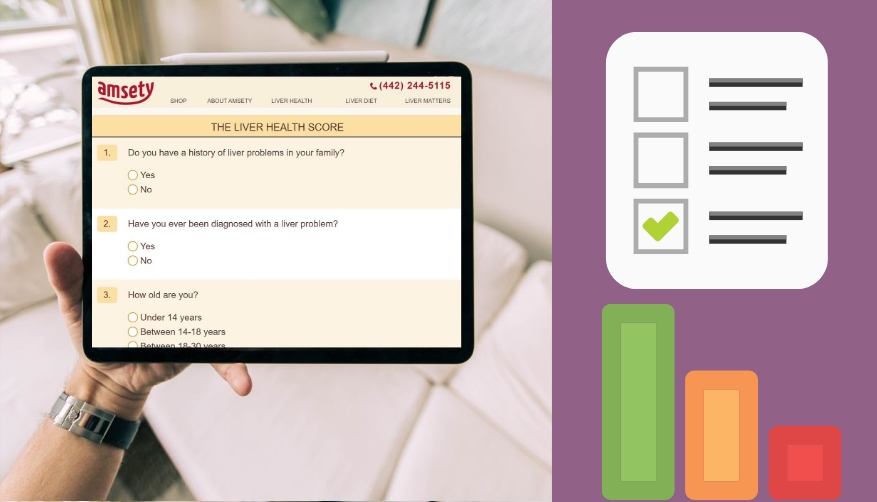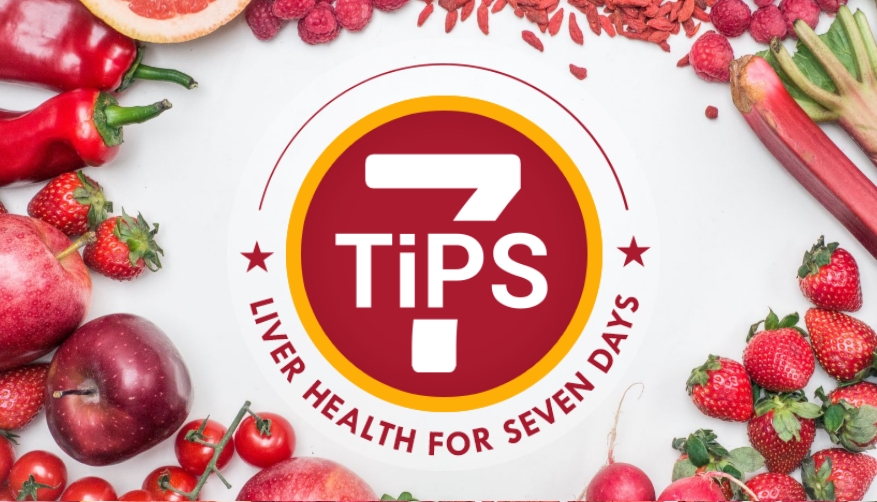Eating a balanced diet rich in lean proteins, legumes, whole grains, vegetables, fruits and nuts provides your body with the nutrients needed for optimal liver health. Dairy products contain calcium and vitamin D, but they are also high in fat. Instead, consider other foods high in calcium, like kale, and foods high in vitamin D, like salmon, as well as dairy alternatives, such as almond milk. Limit red meat intake to 70 grams per day and avoid empty calorie foods that have no or minimal nutritional value, like fast food, cheese, foods made with white flour, shortening and fruit drinks.
Take the time to cook at home and make liver-healthy recipes, check food labels when shopping, and if you are unsure about the nutritional value of a meal when eating out, ask the restaurant manager. For a nutritious on-the-go snack, try Amsety bars. The nutrition bars, beneficial for liver health, contain no gluten, refined sugars, lactose or GMOs, and have very low sodium.
Drinking water has numerous health benefits, including boosting metabolism, increasing energy levels, and helping the liver remove toxins and break down fat. How much water you should drink depends on factors like your height, weight, age, gender and fitness level, however, drinking eight glasses of water each day is a good estimate. According to the American College of Sports Medicine, you should drink an extra 12 ounces of water for 30 minutes of exercise.
The Department of Health and Human Services recommends 30 minutes of aerobic exercise each day. Types of aerobic exercises include walking, cycling, swimming, dancing and cross-country skiing. Regular exercise can have many health benefits, including increasing your energy levels, helping with weight loss, improving your mood, lowering high blood pressure, and preventing health conditions and diseases, like fatty liver disease. Regular exercise can even help reverse fatty liver disease in its early stages and improve your liver health.
Consuming alcohol above moderate amounts can lead to alcoholic cirrhosis, a liver disease where the liver becomes permanently scarred. Alcoholic cirrhosis occurs when the liver becomes inflamed from heavy alcohol consumption over a long period of time and can progress to other serious health conditions, like kidney disease, brain disorders and liver cancer. The Centers for Disease Control and Prevention(CDC) defines moderate drinking as up to one drink for women and up to two drinks for men on any given day. One drink is equivalent to 12 ounces of 5 percent beer, 5 ounces of 12 percent wine, and 1.5 ounces of 40 percent distilled liquor or spirits. If you have alcoholic cirrhosis or other health conditions, it is important to avoid drinking alcohol altogether. If you do not, you are unlikely to get alcoholic cirrhosis from drinking occasionally in moderation.
The liver not only processes everything we eat and drink, it also processes everything we inhale, like the chemicals from cigarettes, and everything that comes into contact with our skin, like beauty, skincare and cleaning products. Exposure to chemicals can lead to toxic hepatitis, a condition where the liver becomes inflamed as a reaction to certain chemicals. Avoid smoking, taking illicit drugs, and limit over the counter medications, like painkillers. If possible, opt for chemical-free makeup, cleansers, moisturizers, lotions and other beauty and skincare products. When cleaning, wear a mouth mask and rubber gloves, open doors and windows so the space is well ventilated, and consider purchasing natural cleaning products (you may even already have some in your kitchen, like vinegar).

Discover the first nutrition bars designed to support liver health.
Read more >Take the Liver Health Score to find out how healthy your lifestyle is for your liver. Fill out an easy questionnaire, find out your Liver Health Score, and learn what changes and improvements are yet to be made to your diet and lifestyle to support your liver. Take your Liver Health Score.

What Foods Are Really Bad for The Liver?

How to Lead a Liver-Healthy Diet

7 Essential Rules for Improving Liver Nutrition

How To Lose Weight For A Healthy Liver?

10 Questions To Ask Your Hepatologist
What´s your Liver Health Score?
Find out whether you are leading a livery-health lifestyle

Kitchen Companion Printable
Get a FREE monthly printable with liver health tips for your kitchen.

Related Subjects
Back to top